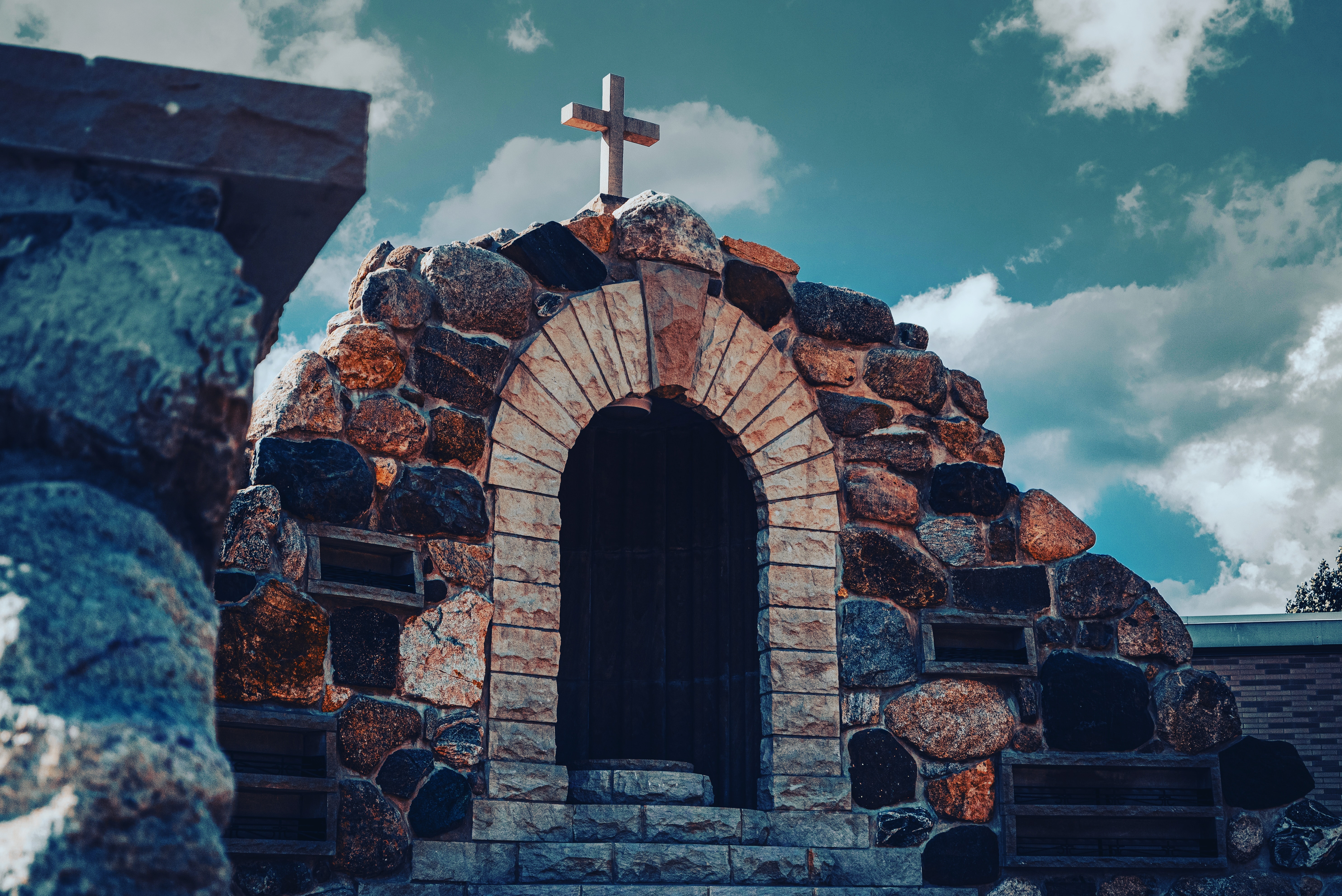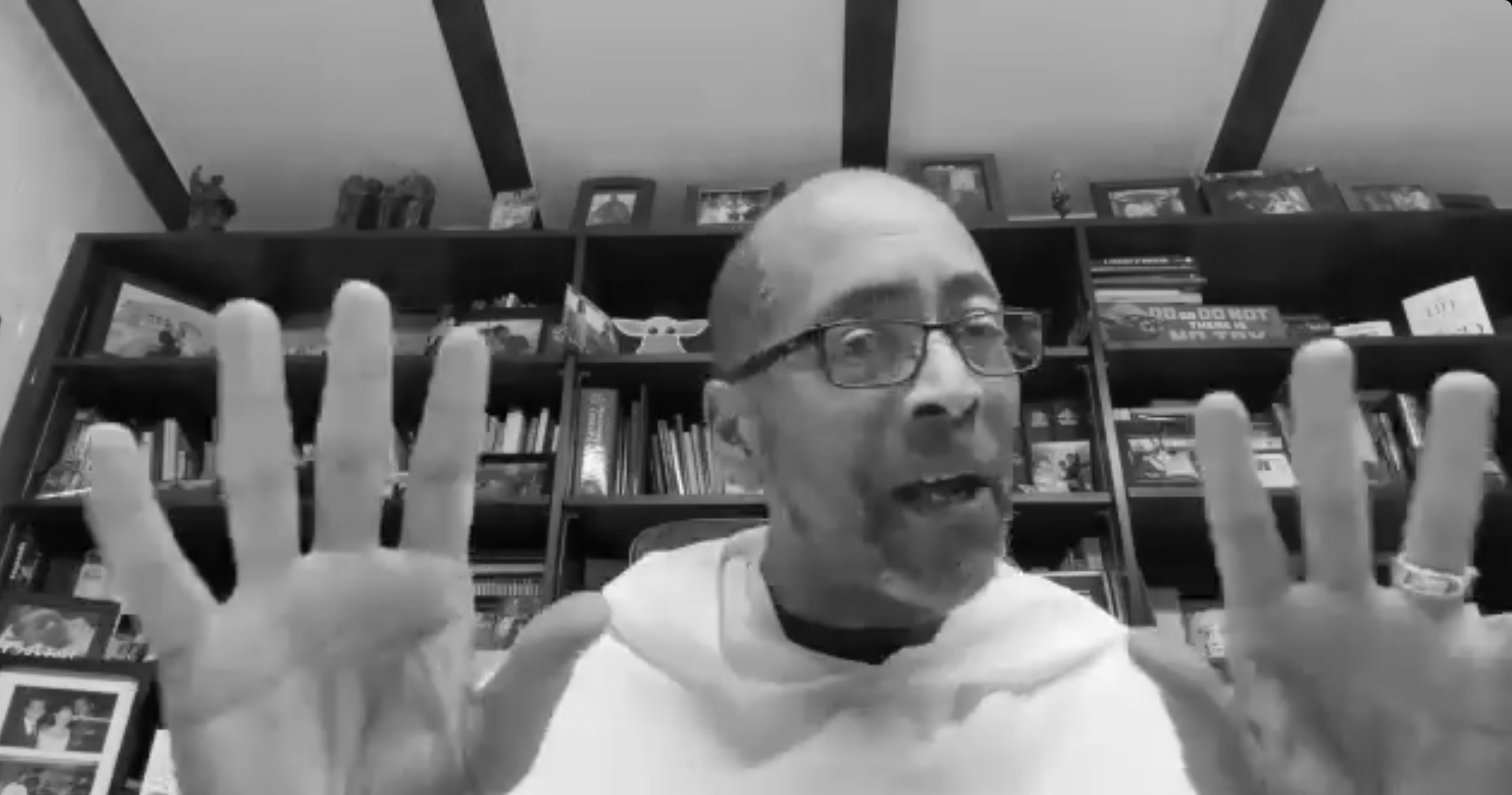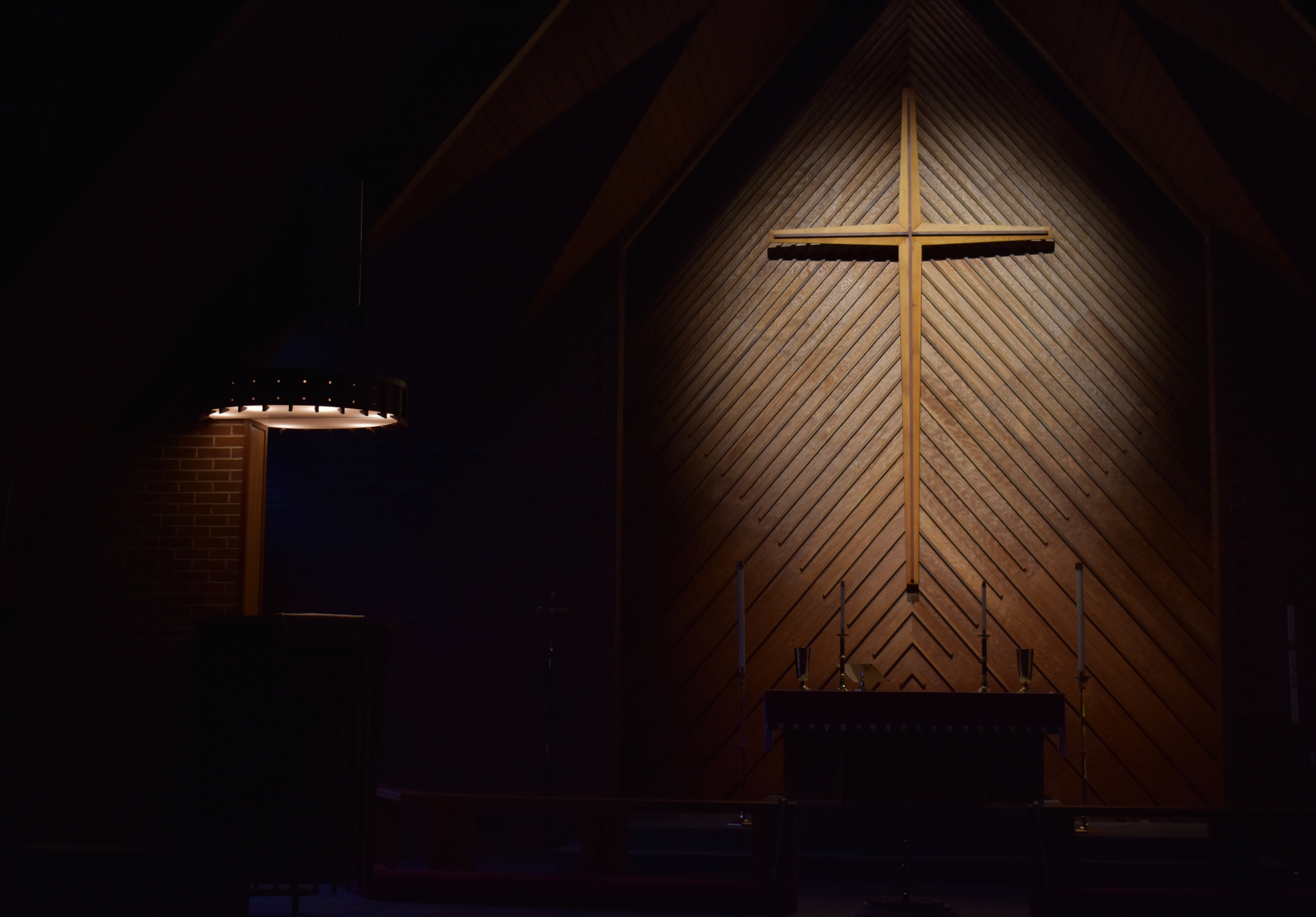"When they had told us that...one of their kids had told them that the greatest gift that their parents had ever given them was to live abroad in mission...and we really wanted that for our kids. And that has been 100% true."
Not many Christians are leaving their homes to do God's work abroad but Anita and Curt Klueg did, even as a family with children. In this interview they share their experience as Christian missioners abroad through programs like the Maryknoll Lay Missioners. They highlight the challenges of work and raising a family as well as the benefits of immersing themselves in the Kenyan culture. Now back in the US, they speak on how transformed the entire household remains in their personal and professional life to this very day.
The following are edited excerpts and outline of the conversation from this podcast interview.
[00:00:14] Anita and Kurt, you were living in the US and decided to be Christian missionaries abroad. What was that discernment like personally, as a couple, as a family to leave behind, what for most of us is a comfortable life, for something different?
Anita: So we dated in college and as part of just things that we talked about, we talked about mission…I wanted to either join the Jesuit Volunteer International or I wanted to go somewhere where I can use my Spanish…
Curt: …as we were talking about marriage we decided we wanted to do something like that together. And Maryknoll had a really great reputation of being welcoming to couples, and furthermore to families. So it seemed like a really perfect fit. So we’re talking about that even in the process of our engagement and marriage prep…
[00:02:21] Did you feel like you were always naturally, from a young age, called or wanted to do this type of missionary work?
Anita: So my mom is Filipina, married my dad, well my dad followed my mother back to the Philippines. They met in the States and then they came back, and my parents were just really good about hospitality…and so from a young age I knew it was important to help and to support people, and we invited people into our home all the time…
Curt: And I’m a little bit different, in some ways similar as well. So, growing up, we did have a Vietnamese refugee family living right next door to us that our parish kind of sponsored, and then we by default, living so close built relationships with. So that was kind of that cultural experience but I had no inclination or desire from a young age to go live abroad…
When I got to college I ended up having a theology class, it got more of a morality/justice and peace class that I really liked and at the time was thinking about work in the field of college student personnel, where it really didn’t matter what your degree was in. So that’s when I switched my major to theology and really enjoyed that. But she was always talking about, like, she’d wanted to do a year of service abroad and so that was my, kind of my first introduction to it…
[00:05:45] And how did you feel like in those initial conversations/talks, hearing Anita express that interest? Was it something that needed a lot of convincing?
Curt: Yeah, so it was kind of interesting in the sense that that first time around when we did it on our own separate ways, she was kind of the one that introduced me to the idea or the notion of doing a year postgraduate service from a faith-based lens. But then when we both got back from those experiences and we got engaged, you know, we both had, I still had a desire to go abroad because I had originally been slated to go to Sierra Leone and couldn’t. She had her experience in Bolivia, left her wanting more, wanting a different experience. So that second time around it didn’t feel like either of us needed any convincing or anything. We were both pretty on board…
…we went over as a couple, came back as four, because we had both of our daughters abroad. And it was kind of a hard decision to come back, I ended up going back to graduate school. We wanted to go back mostly just so our families could get to know our kids but our plan all along was to go back to mission again, within like, within a 3 to 5 year span. And that’s exactly what we did.
And that’s a little bit harder process the second time around because we had an apartment, we had a lot more stuff. So we had to get rid of stuff. Then you had to think about, you know, at that time our kids were, when we went back, our kids were 5 and 6 years old. So you had to factor in school and all those things. So that was a much more significant decision but I think we’ve been both really lucky that, you know, we’ve known families that had, or missionaries who had pushback from their families. You know, grandparents who didn’t want to say goodbye to their grandkid, and we always had families that were just really supportive, like, ‘you want to go do that? That’s beautiful. That’s wonderful. Go do that.’
[00:09:08] So there are challenges or things you both need to consider. But on the other end, what were the factors that made you want to go back despite the distance, despite not being close to family, despite having your children?
Curt: I think we’re gonna both answer the same way…when we were in Chicago we were part of an extended Maryknoll community and there was a couple Celine and Don…who had served, I don’t know, 6 or 9 years or something in both in Venezuela and then Oaxaca, and we’ve both quoted this a number of times, when they had told us that being in mission was the greatest, that one of their kids had told them that the greatest gift that their parents had ever given them was to live abroad in mission. And we’re like, ‘yeah, yeah.’ And we really wanted that for our kids. And that has been 100% true. Our kids are now 20 and 18, almost 20 and 18 and both have referenced their time in Kenya, referenced that intercultural experience, see themselves as global citizens…
[00:11:04] There is a difference between going abroad in mission as an individual and as a family. What are the benefits of being on mission as a family?
Anita: When the kids were little, as toddlers, we lived in a lot of places. In Mombasa, had to be fenced for safety concerns but we let them run around in the streets with the other little kids and play, and they would wander into other people’s homes like right across. And I would never have invited myself, you know, but I have to chase after my kids…
[00:15:36] Were the kids always comfortable in this new reality? Did they themselves have to grow from a certain challenge or issue from just being abroad?
Curt: Maryknoll, wisely, I think they only take families that have children who are eight years old or younger as a starting point, for a good reason I think. I think once your kids are like over eight then there’s more of those, more that self-awareness that make, that complicates things. But our kids were young enough when we returned that they just kind of hit the ground running. Not to say there weren’t some moments…
[00:17:59] Curt, I read your writing on your work in prison, how did this overall experience challenge or strengthen your faith?
Curt: Well, I mean, I think folks have a, due to our own media consumption and so forth, we people have really strong perceptions of what prisoner might be like, let alone like a death row prisoners. And once I started visiting guys on, it was called the Condemned Block, you know, it was the block of condemned prisoners who were facing the death penalty, although none of them were really at immediate risk of it because they hadn’t executed anyone in many years. But it was kind of at the whim of the president, so there was always a potential threat.
Anyway, so I visited the condemned block of guys and once I had a bit of a rapport, the guards would kind of stand off in the distance and people would just kind of gather around. I have 15 or 20 guys around me at a time waiting to talk to me, ask me, you know, ask me to go follow up on, you know, go to the courthouse and see if I could find out the status of their case. Which was, you know, I wasn’t doing any kind of legal work by any means, it was like just go find out if, you know, when their case was coming up. And so I’d go to the registrar and ask them. They’d at least, you know, give me some timeframe or something that I could report back.
So I think a lot of the times those guys were just looking for some validation of someone sees them. Someone, you know, is aware of their situation. A lot of times they’d asked me to go visit their family because maybe their family didn’t even know they were in prison. Or they’d been shuffled from one prison to another. So just to be seen and known where they’re at but in that process kind of building a relationship and seeing them as not a whole lot different than myself, you know, in terms of they would have interest in sports or soccer teams. Or, you know, love and care for their own families that they’re, you know, wanting to connect with. So you begin to see them not as a stereotype that you might see on the TV but just as another human being. And I would rarely, rarely find, you know, be finding out what they were accused of because that was like not a primary concern. The primary concern was trying to build a relationship with them and find out was there any way that I could, you know, accompany them…
[00:22:38] I know there are some Maryknoll lay missioners that do this as extensive part of their lives. You guys did this mission for a certain time period and then came back to the United States. Reflecting back on it, what is a major change in you, individually or as family, if you guys had not done that work abroad? Where can you imagine yourselves being different if you had not been abroad?
Anita: So for me, one of the reasons I’m here in Detroit is because of what I learned in my experiences in Mombasa. We had the opportunity to take a 3-week course, intensive course at Tangaza University, just outside of Nairobi, on Islam in East Africa because we knew we were going to Mombasa, which is about 90% Muslims there. So we wanted to have just a taste of, learn a little bit, so we’re aware and educated about the religion…So having a better understanding, and then just being in a relationship at the Marianist Vocational School that I was at, we took in anyone. It didn’t matter: Christian, African traditionalist, or Muslim. Any young adult was welcome to be a part of that school with the Marianist…
So when I was discerning coming back, when both of us were discerning this another, the third contract potentially with Maryknoll, kind of the thought was: where could, if one of us can find a job that could potentially make us happy, then the other would just go and figure it out. And so Detroit Mercy is a Jesuit and Mercy university. But we live in an area: Detroit, where Dearborn is the largest Muslim community in the United States and my University, although Catholic, Christian, Jesuit, Mercy has about 16% Muslim students. When I found out about this, I was like, “oh, not only is it 90%, you know African American in the city, but there’s also a ton of Muslim students.”
And what a wonderful bridge for me having learned about Islam. I’m not here to convert anyone but I just want to, I want, I want everyone to understand what it means to be in harmony with all people. And so I just thought, could be a great experience. And it has been. I’ve been here at the University ten years, and just this past year we actually finally hired our first time, part-time Muslim chaplain for our Muslim students. But it took lots and lots of years to create those beautiful relationships and I think that has made my faith stronger, just being able to journey with so many people of different faiths.
Curt: You know, again, I think a big part of it for me has been kind of how it has impacted our children and our family. And I think that openness to other people and other cultures has certainly carried over to our experience back here in the United States…our house here has a little bit of extra space so we’ve hosted a number of longer term international folks in our house here. So sometimes they pay rent, sometimes they don’t, some of them have been students, some of them have been refugees or asylum seekers. But for the past 8 years I think we’ve always had somebody else living in our house, and not like a, living in our house with some separate entrance or anything, you know, sharing the kitchen, sharing the, sharing the bathroom, sharing the refrigerator…so there’s that sense of hospitality. So I think all those things have been largely a carryover of our time with Maryknoll and Mission. It’s like, how do you live mission back, back at home?…
You always hear people who’ve been in some kind of, you know, part of a service experience talk about how they, you know, gained just as much as they gave, etc. And I think that’s, people say that a lot because it’s true, right? And I think when we were in formation for mission, a lot of it is kind of framed in terms of earning your keep, so to speak. Like, it’s not like you’re going there to bring something to, you know, another peoples. That’s holy ground already. You’re not going to bring God or anything like that. You’re not going to, you know, enlighten anyone. And you, hopefully, you can earn your keep and enter into relationship…I think that’s the way Maryknoll certainly views mission now.
If you look at some of the more celebrated missioners over the past year, there’s a Brother who was working with monks in Thailand. I remember him so clearly. He was teaching English and basic skills to Buddhist monks, you know, not trying to change them, not trying to convert them by any means, you know, rather to celebrate their life. And there’s another priest who was in Bangladesh who I really admired. He talked about how he wanted, you know, he was working in an entirely Muslim community, and he simply wanted them to be the best Muslims they could be, you know. So to, you know, so it had nothing to do with trying to change someone’s perspective on God, but rather to celebrate each other’s perspectives on God. And I think that’s kind of how we understood mission and we’re grateful to Maryknoll for that.
[00:32:03] I want to end with the 3 questions I always ask all my interviewees. The first is what is one scripture verse or part of the Bible that really resonates with you? And why?
Anita: I’m going to choose Luke 24:13-35, and that’s the walk to Emmaus. Lately that’s been, I have an icon of it, but that in conversation, walking with others and then over a meal, I love cooking and I love conversations and bringing people together over a meal, but that we notice that Jesus is right in front of us and that’s how we do it. So yeah, that’s my Scripture.
Curt: She had a second one down here that I had thought about and so I’m gonna run with it. It’s from Micah, I think it’s also on Amos, but ‘what does the Lord require of you? Only to do justice, to love kindness and walk humbly with your God.’ So I think a big part of my own faith has been on what it means to live that out day to day. So the justice element of it. And then also that sense of walking humbly with your God, so which kind of harkens back to that sense of interreligious dialogue and intercultural experience. There’s that sense of walking humbly with your God. And so, you know, approaching other religious traditions and approaching other cultures with humility, recognizing that God is already present there, and the richness of those traditions, and trying to grow and learn from those traditions and from those experiences.
[00:33:43] The second question is, what is one word or couple of words that you would like God to use in describing you?
Anita: Radical hospitality. Coming out of the Sisters of Mercy, but just it’s in my genes, my Filipina genes. So hospitality.
Curt: Kind of connected to that, a sense of inclusiveness…I hope God would recognize me as an inclusive person.
[00:35:08] The last question is, is there anything we can help promote or you like others to support?
Anita: Well, just promoting Maryknoll missioners is a great opportunity for those who feel called and want to discern in that way. And I think in the midst of all of what’s going on in politics I think my, with my daughter working in immigration reform I want to continue to think about how very important that is when it comes to inclusivity and radical hospitality as a country, that we need to make some just and ways to allow people to be anywhere.
Curt: Well she mentioned Maryknoll. Another organization, I already mentioned the Catholic Worker Movement, but I think like something like Pax Christi is really great. I love the way that the Church is seeming to more and more embrace this idea of Christian nonviolence. That’s something I’ve been passionate about and would love to see that more and more embraced. And we’re hearing more with each Pope, that approach to pacifism and active nonviolence is certainly within our tradition. So I’d love to see that encouraged and promoted and embraced even more.





